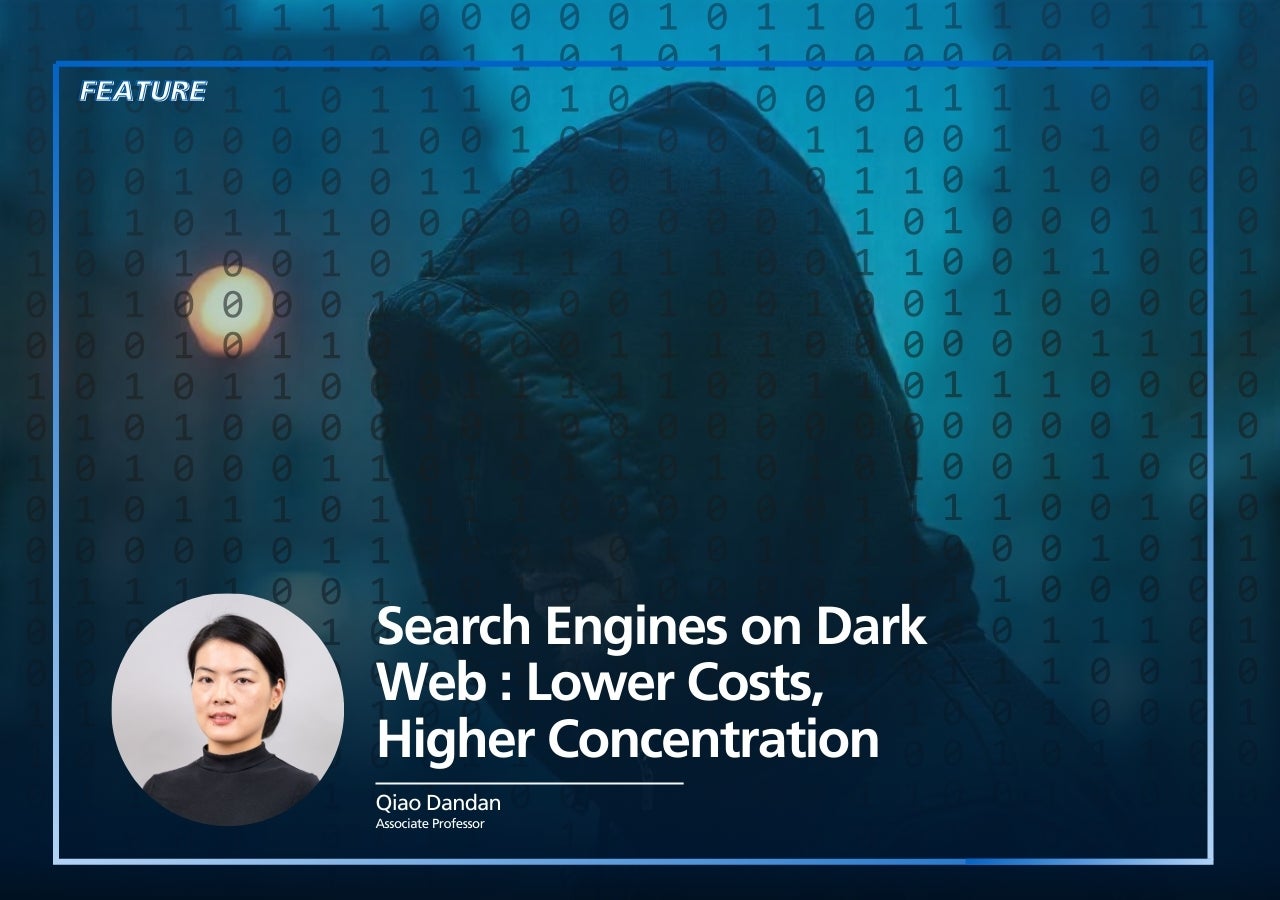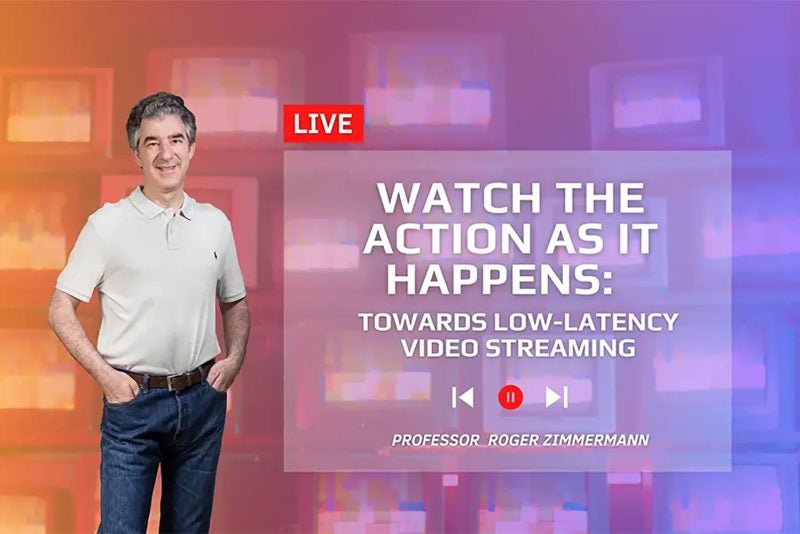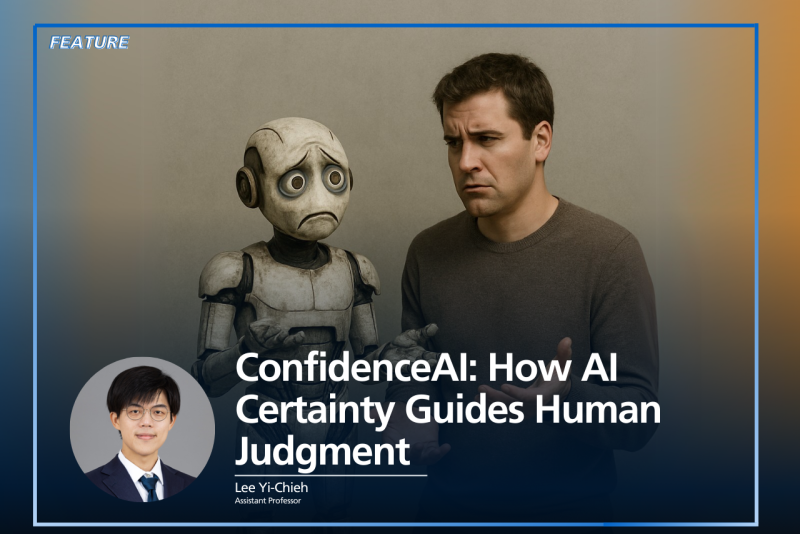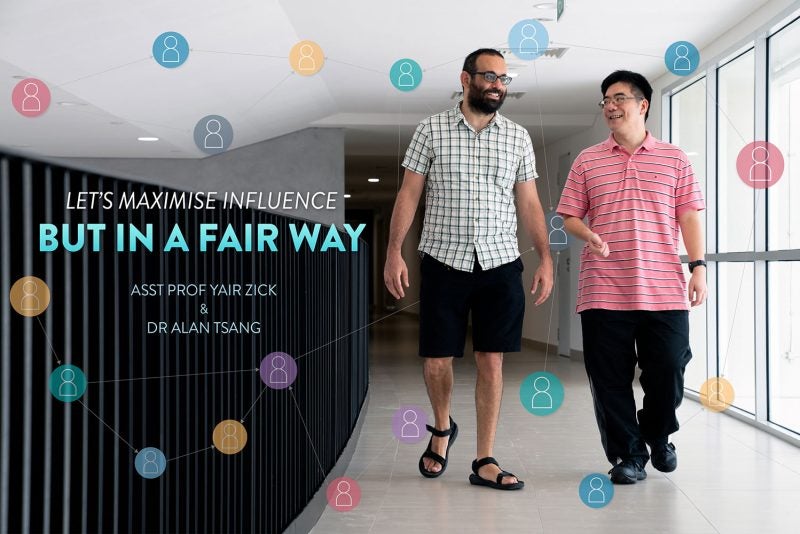The Dark Side of Discovery:
How Search Engines Concentrate Power in Online Markets
When most people think about the Internet, they picture a place of easy access and endless information. Search engines like Google have made finding knowledge, services, and products just a few keystrokes away. But what happens when the power of search extends into parts of the Internet designed to be hidden; namely, darknet markets?
This question isn’t just an academic curiosity. As digital black markets grow and evolve, understanding their dynamics is crucial for law enforcement, policymakers, and anyone concerned with the future of online regulation. At the heart of this challenge lies a puzzle: how does reducing “search costs” – the time and effort needed to find things – change the dynamics of illegal marketplaces?
NUS Computing’s Associate Professor Qiao Dandan, in collaboration with former PhD student Dr. Lu Ying (Assistant Professor at IE Business School), Bernard Tan (Shaw Professor in Information Systems and Analytics at NUS Computing) and He Shu (Assistant Professor at the University of Florida), tackled this issue head-on in a fascinating new study that analyzed the rise of GRAMS, a search engine built for the darknet to uncover surprising insights about how technology can reshape even the most secretive corners of the web.
The Rise of GRAMS: Google for the Darknet
In April 2014, GRAMS launched as a search engine specifically designed for darknet markets. Before GRAMS, buyers seeking illicit goods had to manually browse through individual marketplaces, a tedious and fragmented process. GRAMS changed the game by indexing listings from numerous marketplaces into one searchable platform.
It even aggregated vendor profiles, showing user ratings, cryptographic public keys, and activity across different sites. In essence, GRAMS made it as easy to shop for illicit drugs or hacked data as it was to search for shoes online.
For researchers, GRAMS offered a unique opportunity. By comparing darknet market activity before and after its launch, and by using rigorous statistical techniques, they could study how powerful search tools transform black markets.
Boosting Activity, But Unevenly
At first glance, GRAMS seemed to democratize access to the darknet. With better search functionality, it should become easier for small or niche sellers to get visibility, right?
Not exactly.
The study found that while GRAMS significantly boosted overall activity, the benefits were not evenly distributed. Vendors whose products were indexed by GRAMS experienced a whopping 88% increase in weekly transactions . The variety of goods they offered also expanded by 23%. Similarly, drug categories listed on indexed marketplaces saw a 70% jump in transaction volume, and the number of vendors selling these goods increased by 52%. Marketplaces themselves benefited too, with higher numbers of transactions, products, and active sellers.
In short, GRAMS turbocharged the darknet economy. But it didn’t do so fairly.
Concentrating Power in the Darknet
Rather than leveling the playing field, GRAMS made the big players even bigger. The researchers used the Gini index – a measure often used to describe income inequality – to study how concentrated sales became after GRAMS launched. They found that the Gini index for vendor market share rose by nearly 13%, and category concentration rose by over 10%.
In plain terms, although the total size of the market grew, the lion’s share of benefits went to vendors and products that were already popular before GRAMS. Instead of helping smaller or newer sellers catch up, the search engine reinforced existing hierarchies.
This finding is striking because it contrasts with what happens in many legal e-commerce settings. On platforms like Amazon or eBay, better search tools sometimes help niche products find their audience. In the darknet, where trust and reputation are paramount, search instead amplified the dominance of established vendors.
Trust, Not Price, Rules the Darknet
Why did search concentrate power rather than distribute it? The study identified two key mechanisms.
First, trust. In the darknet, where scams, law enforcement stings, and dangerous products are real risks, reputation is everything. GRAMS made it easier for buyers to find and stick with vendors they trusted. Good reviews and verified identities mattered more than low prices.
In fact, the study found that leading vendors experienced the largest gains when selling high-risk goods – products that were riskier legally or physically . Buyers were willing to pay a premium for safety, making established sellers even more attractive.
Second, scale-up ability. Leading vendors didn’t rely on cutting prices to grow their dominance. Instead, they expanded their product lines, offering more variety within popular categories. By becoming one-stop shops, they captured even more buyer loyalty.
Policy Implications: Curbing Illegal Trade in the Age of Smarter Darknets
The findings from this study don’t just offer academic insight; they also carry critical implications for real-world policymaking and law enforcement. As darknet marketplaces evolve to adopt more sophisticated tools like search engines, strategies to regulate or disrupt these illicit ecosystems must evolve as well.
First, the study reveals that trust and reputation, not price, drive much of the concentration of power in darknet markets. This suggests that interventions targeting the most trusted and dominant vendors could be disproportionately effective. Rather than trying to dismantle entire marketplaces, enforcement efforts could focus on removing or undermining the top vendors who control a significant share of transactions. Targeted takedowns of high-reputation sellers could destabilize market trust and dissuade new entrants.
Second, policymakers must recognize that better search technologies increase the speed and ease of illegal transactions. Regulatory approaches could therefore include monitoring and disrupting indexing services like GRAMS that aggregate listings across multiple markets. Cutting off these aggregation points could significantly raise search costs again, making illicit commerce slower, less convenient, and riskier for participants.
Third, policymakers must also recognize that even though better search technologies may increase the speed and ease of illegal transactions, these technologies can also enhance the visibility of the dominant players in these illicit markets, making it easier to conduct targeted takedowns as discussed above..
What is clear from the NUS study is that technology, specifically search, is not a neutral force. It can reshape who holds power in illegal economies, often reinforcing hierarchies. Policymakers and law enforcement must not only adapt to these technological shifts but anticipate them, building regulatory and intervention frameworks that evolve alongside the markets themselves.
The implications of this study go well beyond darknet markets. They offer lessons for understanding how new technologies, especially search tools, can alter power dynamics in any online market, legal or otherwise. For policymakers and regulators seeking to spur innovation and competition by democratizing markets, this suggests caution. Enhancing search functionality sounds good on the surface: it can boost competition, empower consumers, and drive innovation. But as the darknet example shows, in environments where trust is critical and regulations are weak or absent, better search can concentrate power rather than democratize it. This applies not only to black markets, but also to emerging sectors like decentralized finance (DeFi), online labor marketplaces, or even AI-driven gig platforms. In each case, improving discovery mechanisms without addressing underlying trust and safety structures might unintentionally entrench inequality.
Regulators might need to think about:
- Monitoring how new technologies change competitive dynamics, not just whether they increase activity.
- Creating rules that ensure fair access to markets, such as transparency in rankings and search algorithms.
- Supporting new entrants with verified reputation systems to level the playing field.
- Simply building a “better” tool isn’t enough; it matters who benefits and who is left behind.
Future Impacts: From Darknet Lessons to Real-World Applications
The insights from this study could have profound effects on how we design and regulate online systems in the future. For example, imagine search technologies designed for emerging AI marketplaces. If buyers are looking for AI models, data services, or even synthetic media generators, who gets surfaced first? Without careful thought, those markets might replicate the darknet dynamic: leaders will entrench their dominance, and smaller innovators will struggle to be seen. Similarly, as the metaverse becomes more commercialized, search engines for virtual goods and services will become critical gateways. Without safeguards, better search could lock early movers into permanent dominance.
In cybersecurity, too, the lessons apply. Law enforcement efforts to disrupt darknet markets could benefit from focusing on the leading vendors, as they now know that concentration makes these markets vulnerable to strategic interventions.
Finally, for technologists building new platforms—whether for education, remote work, or community building—the findings serve as a reminder: user trust and ability to scale are critical factors that technology platforms often amplify, for better or worse.
Conclusion: When Technology Changes the Rules
This study sheds important new light on a world that, by its nature, prefers to remain hidden. It shows how technological innovations like search engines, when introduced into illicit marketplaces, can have powerful and unintended consequences, fueling market growth, concentrating vendor dominance, and making illegal transactions faster and more efficient.
But these findings also offer a roadmap for smarter intervention. By understanding that trust and reputation, not just price or volume, drive market success, policymakers and law enforcement agencies can design more strategic disruptions. By targeting dominant vendors, dismantling search aggregators, eroding trust in reputation systems, and shrinking demand through public education, regulators have a better shot at curbing illicit trade on the darknet.
More broadly, this research is a reminder that digital technologies – even ones designed to “improve” access – are never neutral. Search engines, recommender systems, and discovery tools can shape economic outcomes, tilt competition, and reconfigure power structures, often in ways that defy our initial expectations.
As society grapples with how to regulate emerging digital spaces – from decentralized finance (DeFi) to AI-generated marketplaces to the expanding metaverse – understanding these hidden dynamics will be crucial. If we want to prevent illicit economies from flourishing in the shadows, we need to move beyond reactive enforcement. We must build regulatory strategies that anticipate how technology transforms markets—and design interventions that are as nimble and adaptive as the platforms we seek to govern.
The lessons from the darknet are clear: in the digital underground, the rules of the game are written by those who understand technology best. It’s time for regulators to catch up; because in the battle for control over online economies, the future belongs not just to the innovators, but to those who see the full picture. As we move into an era of increasingly complex digital economies, the lessons from the darknet may end up being some of the most valuable guides we have.
Further Readings: Lu, Y., Qiao, D., He, S. and Tan, B.C.Y. (2025) “How Search Engine Impacts Market Structure: Empirical Evidence from a Multivendor Darknet Market,” Management Science, Articles in Advance, DOI: 10.1287/mnsc.2022.04133































